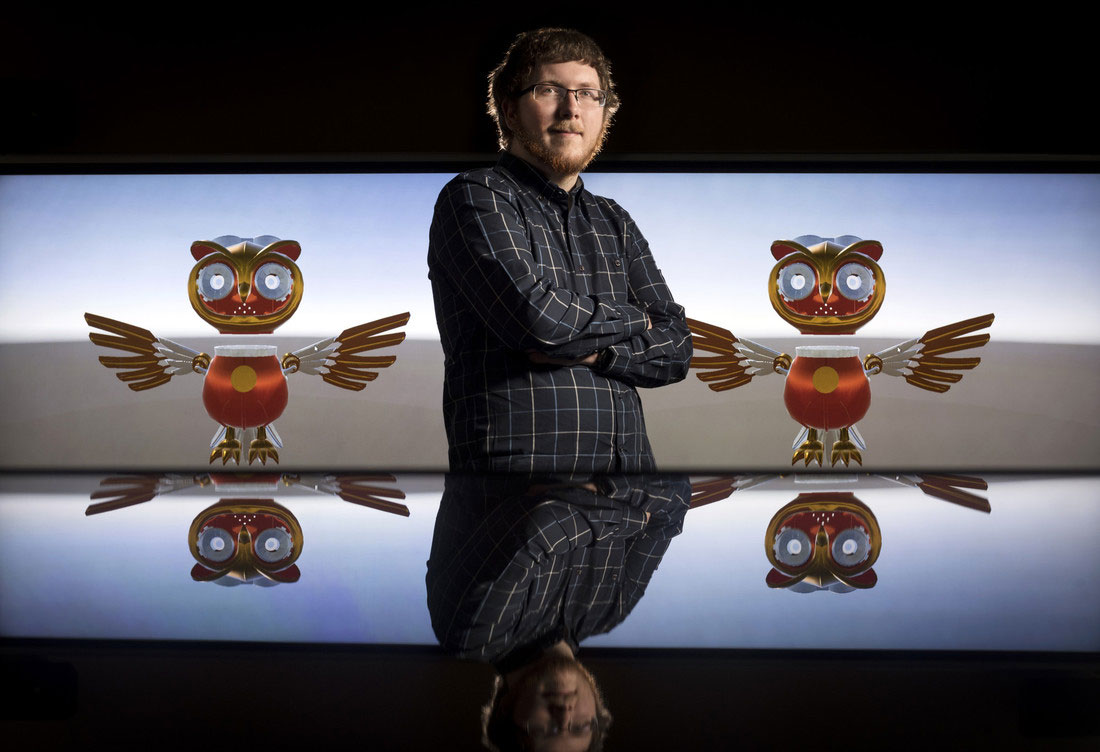UA Little Rock student creates virtual tour guide using facial recognition research
A virtual tour owl has come to life thanks to the research of a doctoral student at the University of Arkansas at Little Rock.
Connor Young, a first-year integrated computing doctoral student from Springdale, is using his research in facial recognition to create “WhoNu,” a virtual owl tour guide that will welcome guests at the Emerging Analytics Center‘s open house next week. Young is a research assistant at the center.
“What my program does is automatically detect facial movements and key facial features and transmits them into points that we can move to a virtual avatar,” Young said. “It is based on my previous research. We call it the puppet program.”
His research involved facial-based emotion recognition and tracking, where a person is looking on a computer screen. He did that research as a 2014 and 2015 participant in UA Little Rock’s Summer Undergraduate Program of Entrepreneurship and Research.
In 2016, he and a team of students developed an eye-tracking system for trucking companies as part of the National Science Foundation Innovation Corps Teams (I-Corps) Program. The system helps detect fatigue and sleep in truck drivers.
WhoNu will greet visitors during the Emerging Analytics Center’s open house from 10 a.m. to 5 p.m. Friday and Saturday, April 7-8, where visitors can see the latest cutting-edge technology in the world of virtual and augmented reality.
WhoNu is an interdisciplinary project integrating virtual reality, theatre, and graphic art. While Young created WhoNu’s programming, Lead Artist Jay Zak and Zaire Husband, an undergraduate student researcher in the center, designed WhoNu.
Through WhoNu, a group of students from the Department of Theatre Arts and Dance will interact with visitors waiting to go on a tour. Young’s programming will allow WhoNu to analyze the students’ language and facial expressions and repeat it to the guests, as the students observe visitors through webcams.
The open house is an opportunity for people to provide feedback that Young hopes will improve WhoNu.
“One of the problems with working with technology is that you often get feedback only from other people working in the technology industry,” he said. “Being able to collect real data from regular people will be invaluable in determining how WhoNu performs.”
